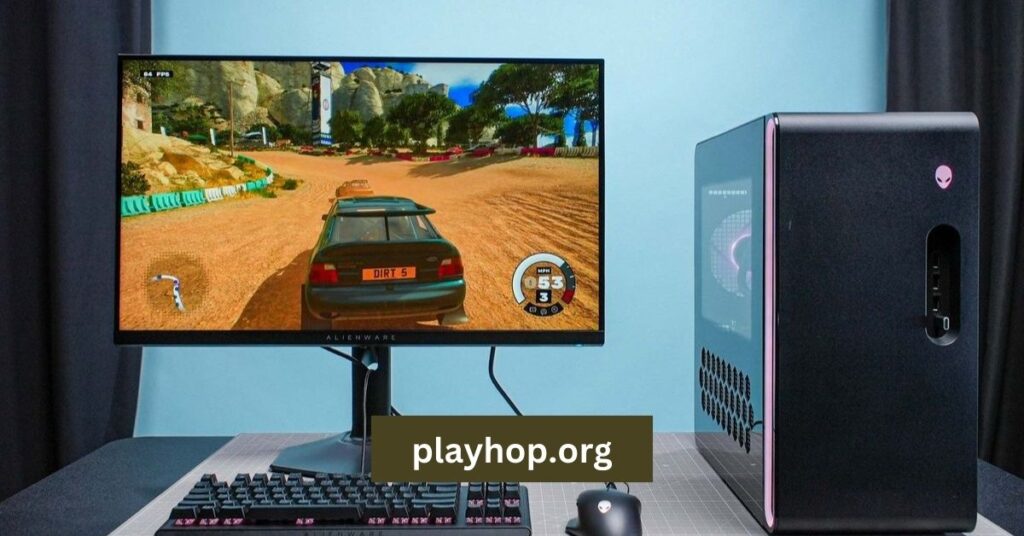The gaming industry has evolved rapidly, turning what was once a hobby into a legitimate way to earn money. Today, playing video games is no longer just about entertainment—it’s an opportunity for gamers to make a living. With the rise of streaming platforms, competitive esports, and a variety of online gaming communities, there are more ways than ever to monetize gaming skills. Whether you’re a casual player, a skilled competitor, or someone with a passion for creating content, there’s a path for you. From streaming live gameplay and coaching other players to participating in tournaments and testing new games, the opportunities are vast. This guide will explore the different ways you can turn your love for video games into a source of income and provide practical tips to get started. Let’s dive into how you can make money playing video games and turn your passion into a profession.
Streaming and Content Creation
Streaming and content creation offer one of the most accessible ways to make money while playing video games. Through platforms like Twitch, YouTube, and Facebook Gaming, gamers can broadcast their gameplay live or upload pre-recorded videos to engage with an audience. The appeal of streaming lies in real-time interaction, where viewers can chat and engage with the streamer as they play.
How to Get Started Building a streaming setup doesn’t require a lot. A gaming PC or console, a webcam, a microphone, and broadcasting software like OBS or Streamlabs can get you started. Once the equipment is ready, choose a streaming platform, create an account, and begin streaming regularly to build a following.

Building an Audience Success in streaming relies heavily on building an audience. Consistency, engaging commentary, and an authentic personality help attract viewers. Interacting with the audience through live chats, hosting giveaways, or collaborating with other streamers can also boost engagement. Creating additional content on YouTube or social media platforms helps grow visibility.
Monetization Options Once you’ve built a loyal audience, monetization can occur in several ways:
- Subscriptions: Platforms like Twitch allow viewers to subscribe to streamers for a monthly fee, often unlocking special benefits like ad-free viewing and exclusive emojis.
- Donations: Viewers can support their favorite streamers by making direct donations during live streams.
- Ads: You can earn revenue by enabling ads to run during your streams or videos. This works well on platforms like YouTube and Twitch.
- Sponsorships and Brand Deals: Once your stream gains traction, companies might offer sponsorships where they pay you to promote their products or feature them during your streams.
Streaming and content creation require time and consistency to see financial growth. However, with dedication, it can evolve into a steady source of income.
Competitive Gaming and Esports
Competitive gaming and esports have evolved into a global phenomenon where skilled players can earn significant money by competing in organized tournaments and leagues. Esports covers a variety of game genres, such as first-person shooters, real-time strategy games, and multiplayer online battle arenas, with millions of viewers tuning in to watch live events.
To get started in competitive gaming, you need to identify a game you excel in. Focus on honing your skills and building a strong understanding of the game’s mechanics, strategies, and teamwork. Many players start by participating in smaller, local tournaments or online competitions to gain experience and visibility.
Earnings in competitive gaming come from various sources. Players who win or place high in tournaments receive prize money, with major esports events offering millions of dollars in prizes. Beyond tournaments, skilled players may also attract sponsorship deals, where brands pay them to promote products or represent their company. Joining a professional esports team can provide additional income through contracts, salaries, and performance-based incentives.
Success in esports requires more than just individual talent. Networking with other players, joining a team, and staying updated on the competitive scene are crucial for long-term success. With dedication, competitive gaming can become a lucrative career, offering multiple paths for income through tournaments, sponsorships, and professional contracts.
Game Testing and Quality Assurance
Game testing and quality assurance (QA) play a crucial role in the video game development process. This field involves identifying bugs, glitches, and other issues that may affect gameplay. Game testers ensure that a game runs smoothly and meets the quality standards expected by players.
To become a game tester, individuals typically need a passion for gaming, strong attention to detail, and good communication skills. Many companies look for testers who can provide constructive feedback and clearly document their findings. This documentation helps developers understand issues and improve the overall gaming experience.
The process of game testing includes several stages, such as functional testing, where testers play through the game to check for any technical problems. They might also engage in performance testing to see how the game runs under various conditions, ensuring it performs well across different devices and platforms.

Testers often work closely with developers to reproduce bugs and verify fixes. This collaboration is essential for maintaining a game’s quality and ensuring a seamless player experience upon release.
For those interested in pursuing a career in game testing, various online platforms and gaming companies offer opportunities. Some entry-level positions may require only a basic understanding of gaming, while more advanced roles might seek testers with specific technical knowledge or experience in software testing.
Overall, game testing and quality assurance offer an exciting way to earn money while contributing to the development of engaging and high-quality video games. It combines a love for gaming with analytical skills, making it a rewarding career path for many.
Creating and Selling In-Game Items
Creating and selling in-game items has emerged as a popular method for gamers to generate income. Many online games offer player-driven economies where users can create, trade, and sell virtual goods. This process allows players not only to enjoy their favorite games but also to turn their skills into profit.
To begin, familiarize yourself with games that support in-game item creation and trading. Titles like Fortnite, Counter-Strike: Global Offensive, and World of Warcraft feature robust marketplaces where players can buy and sell items. Understanding the game’s economy is crucial; this includes knowing which items are in demand and how their value fluctuates based on trends and player needs.
Once you have a grasp of the market, focus on creating unique and desirable items. This could involve crafting rare weapons, character skins, or cosmetic items. Quality and originality are key factors that can significantly influence the selling price. Take the time to learn the game mechanics and invest effort into designing items that stand out.
After creating your items, explore the various platforms available for selling them. Many games have built-in marketplaces where players can list their creations. You can also use third-party websites dedicated to trading virtual goods. These platforms often provide additional visibility, enabling you to reach a larger audience of potential buyers.
Pricing your items effectively is essential for making sales. Research similar items in the marketplace to understand pricing trends. Consider starting with competitive prices to attract buyers and gradually adjusting based on demand. Engaging with your audience through social media or gaming forums can also help promote your items and build a loyal customer base.
Creating and selling in-game items not only offers financial opportunities but also fosters creativity and engagement within the gaming community. By leveraging your skills and knowledge, you can turn your passion for gaming into a profitable venture.
Video Game Coaching
Video game coaching has emerged as a popular avenue for gamers looking to enhance their skills and elevate their gameplay. As competitive gaming continues to grow, many players seek the guidance of experienced coaches to improve their performance in various titles. Coaches provide personalized training, feedback, and strategies tailored to individual needs, helping players reach their full potential.
To become a video game coach, one needs a deep understanding of the game mechanics, strategies, and meta for the specific game they wish to coach. Expertise in communication and teaching is also essential, as coaches must explain concepts clearly and motivate their clients. Many successful coaches also have experience competing at high levels, which adds credibility to their coaching services.
Coaches can find clients through social media, gaming communities, or platforms dedicated to coaching services. Building a strong online presence is crucial for attracting clients, so showcasing gameplay clips, tips, and testimonials can help establish credibility.
Offering coaching sessions can be done through various formats, including one-on-one sessions, group lessons, or video content. Prices may vary based on the coach’s experience, the game’s popularity, and the demand for coaching services.
As more gamers recognize the value of personalized coaching, this industry continues to thrive, providing an exciting opportunity for both coaches and aspiring players. Engaging in video game coaching not only allows individuals to earn money but also fosters a sense of community and collaboration within the gaming world.
Game-related Merchandise
In the vibrant world of gaming, creating and selling game-related merchandise has emerged as a lucrative opportunity for gamers and entrepreneurs alike. This niche not only allows fans to express their passion but also provides a way for creators to monetize their interests.
To begin, consider the types of merchandise that resonate with the gaming community. Popular options include apparel such as T-shirts and hoodies featuring game logos, characters, or memorable quotes. Accessories like hats, phone cases, and bags can also attract attention. Additionally, collectible items such as figurines, posters, and art prints hold significant appeal, especially for fans of specific franchises.
The rise of print-on-demand services has made it easier than ever to create and sell custom merchandise without the need for large upfront investments. These platforms allow you to design your products and only produce them when an order is placed, reducing the risk associated with inventory management.
Marketing your merchandise effectively is key to reaching your target audience. Utilize social media platforms to showcase your products, engage with fellow gamers, and participate in gaming communities. Collaborating with influencers or streamers can amplify your reach and lend credibility to your brand.
Attending gaming conventions or local events can also provide opportunities to sell merchandise directly to consumers. Setting up a booth or collaborating with other creators can enhance visibility and foster connections within the gaming community.
Ultimately, creating game-related merchandise combines creativity with entrepreneurship, allowing you to share your love for gaming while generating income. As you explore this avenue, remember to stay attuned to current trends in the gaming industry to ensure your products resonate with fans.
Becoming a Professional Gamer
The journey to becoming a professional gamer requires dedication, skill, and a strategic approach to navigating the competitive gaming landscape. This path is not just about playing games; it involves developing a unique set of skills and building a brand within the gaming community.
The first step is honing your gaming skills. Focus on a specific game or genre where you excel and immerse yourself in it. Understanding game mechanics, strategies, and staying updated with the latest trends are essential. Regular practice is key to mastering gameplay and improving performance.

Next, consider participating in local and online tournaments. These events provide invaluable experience and exposure. Competing against skilled players helps you assess your strengths and weaknesses, while also allowing you to build a network within the gaming community. Many aspiring professionals start by joining amateur leagues or smaller competitions, gradually working their way up to larger events.
Networking plays a crucial role in becoming a pro gamer. Connecting with other gamers, coaches, and industry professionals can open doors to opportunities. Attend gaming conventions, participate in forums, and engage with communities on social media platforms. Building relationships can lead to sponsorships, team opportunities, and collaborations.
Another vital aspect is establishing an online presence. Create social media accounts and a personal brand that reflects your gaming style and personality. Share gameplay videos, streams, and tips to engage with your audience. A strong online presence not only showcases your skills but also attracts potential sponsors and fans.
Sponsorships are a significant source of income for professional gamers. Once you have established yourself, approach brands related to gaming, such as hardware manufacturers or gaming accessories companies. Having a solid following can increase your chances of securing sponsorship deals, which can provide financial support and resources for your gaming career.
Lastly, stay adaptable and resilient. The gaming industry is constantly evolving, with new games and trends emerging regularly. Embrace change, continue learning, and be open to exploring different gaming genres. Being a professional gamer requires not just skill but also the ability to navigate the challenges that come with the competitive landscape.
Affiliate Marketing in the Gaming Industry
Affiliate marketing has emerged as a lucrative opportunity for gamers looking to monetize their passion. This marketing strategy involves promoting products or services and earning a commission for every sale made through your unique referral link. In the gaming industry, affiliate marketing can be particularly rewarding due to the vast range of products available and the enthusiastic gaming community eager to discover new gear and games.

To start, gamers can join affiliate programs offered by various companies, including gaming gear manufacturers, software developers, and online retailers. These programs typically provide affiliates with promotional materials like banners, links, and product descriptions to help them effectively market the products.
One of the most popular categories for affiliate marketing in gaming includes gaming accessories such as headsets, controllers, and gaming chairs. Gamers can create content, such as reviews, unboxing videos, or gameplay streams, to showcase these products and direct their audience to purchase through their affiliate links.
Online game marketplaces and platforms also offer affiliate programs. By promoting game sales or subscriptions, you can earn commissions on each sale generated through your referral. This approach works well when integrated into gaming content, allowing viewers to trust your recommendations based on your gaming expertise.
Social media platforms and streaming services provide excellent channels for affiliate marketing. Engaging with your audience through platforms like Twitch or YouTube allows you to share links in video descriptions or during live streams, further encouraging purchases.
Success in affiliate marketing within the gaming industry requires building a loyal audience and establishing trust. By providing genuine recommendations and creating valuable content, you can increase your chances of success. As your audience grows, so do your potential earnings, making affiliate marketing a compelling avenue for gamers to explore.
Conclusion
In conclusion, affiliate marketing in the gaming industry presents a fantastic opportunity for gamers to monetize their passion. By promoting gaming products and services, you can earn commissions while sharing valuable content with your audience. Building trust and engaging with your community are essential for success. As you explore this avenue, remember that your expertise and authentic recommendations can lead to a rewarding income stream while enjoying the world of gaming.
FAQ’s
Can you really make money playing video games?
Yes, many gamers earn money through various avenues such as streaming, competitive gaming, game testing, and affiliate marketing.
What are the best platforms for streaming?
Popular platforms for streaming include Twitch, YouTube Gaming, and Facebook Gaming, each offering unique monetization options.
How do I start streaming my gameplay?
To start streaming, you need a good gaming setup, streaming software (like OBS), and a platform account. Consistency and engaging content are key to building an audience.
What skills do I need to compete in esports?
Competitive gaming requires strong gameplay skills, teamwork, and knowledge of the game. Practicing regularly and participating in tournaments can help improve your skills.
How much can I earn as a game tester?
Earnings for game testers vary based on experience and the company, ranging from a few dollars per hour to a salary for full-time positions.
Is it possible to make money selling in-game items?
Yes, many games allow players to trade and sell in-game items or skins. The potential earnings depend on the game’s economy and demand for items.
What do I need to become a video game coach?
To become a video game coach, you should have expertise in the game you want to coach, effective communication skills, and a platform to market your services.
How do affiliate programs in gaming work?
Affiliate programs allow you to promote products and earn commissions on sales made through your unique referral links. Many gaming companies offer these programs.
Can I make a living from gaming?
While it is possible to make a living from gaming, it typically requires a combination of multiple income streams and dedication to building your brand.
What is the best way to promote my gaming content?
Utilize social media, engage with your audience, collaborate with other creators, and optimize your content for search engines to effectively promote your gaming content.

